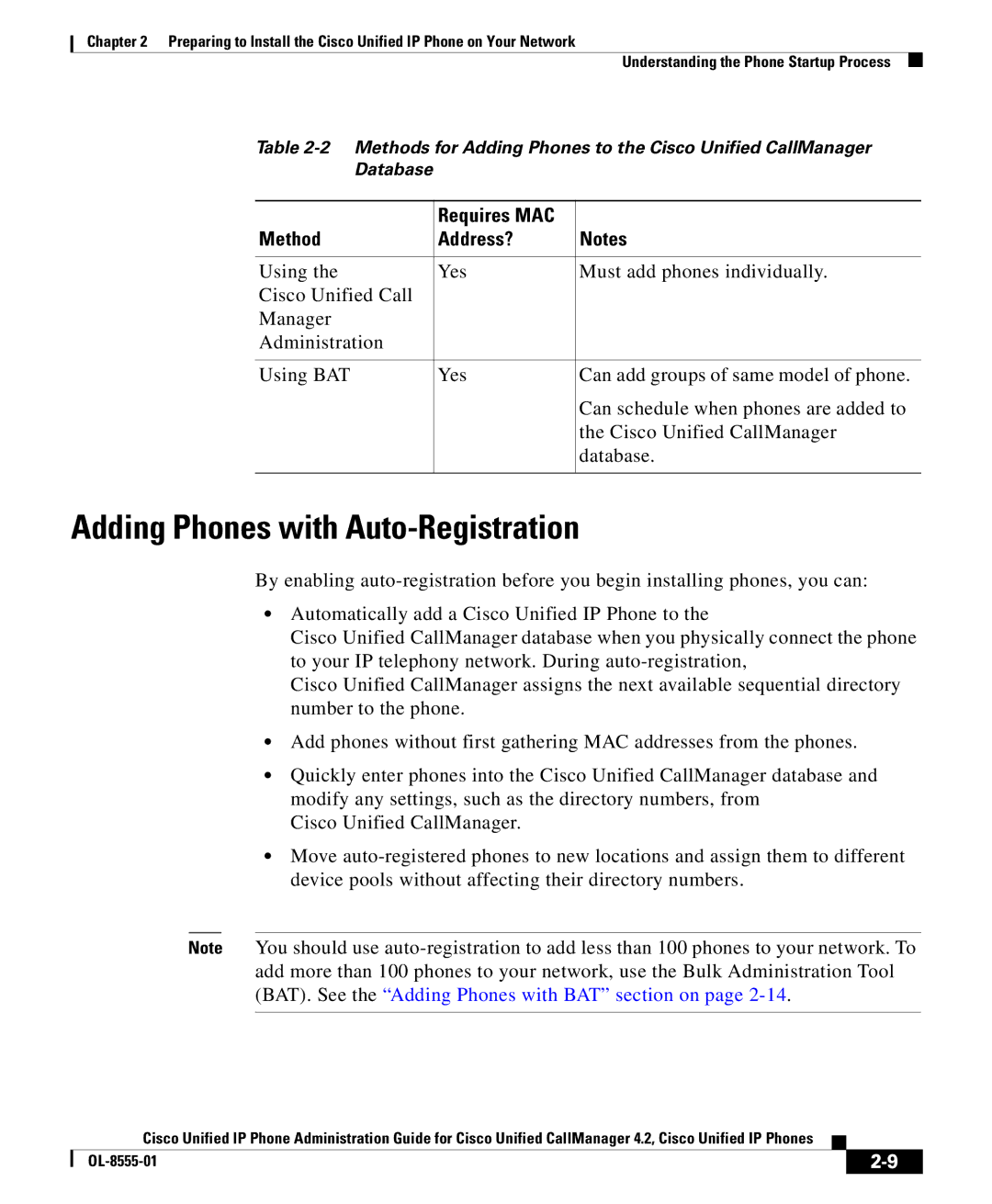OL-8555-01 specifications
Cisco Systems OL-8555-01 is a comprehensive course designed for IT professionals seeking to enhance their understanding of Cisco Unified Computing System (UCS) and Data Center networking technologies. This course focuses on the configuration, management, and troubleshooting of UCS environments and is targeted towards system administrators, engineers, and network professionals involved in data center operations.One of the main features of the OL-8555-01 course is its emphasis on the fundamental concepts of UCS architecture. Participants are introduced to the UCS components, including blade servers, chassis, Fabric Interconnects, and the integrated management platform, UCS Manager. Understanding these components is critical for managing virtualized environments effectively, which is a significant aspect of modern data center management.
The course delves into several key technologies integral to UCS, including virtualization, automation, and orchestration. Emphasizing the importance of virtualization, OL-8555-01 covers how UCS enables the deployment of multiple virtual machines on a single physical server, optimizing resource utilization and improving scalability. Moreover, it discusses the role of automation in simplifying operations, reducing manual tasks, and minimizing errors. Participants learn about automation tools that can streamline repetitive administrative tasks, enhancing overall operational efficiency.
Another characteristic of the OL-8555-01 course is its comprehensive coverage of UCS management tools. Students gain hands-on experience with UCS Manager, learning how to navigate its interface, configure policies, and monitor system performance. This practical knowledge is vital for anyone responsible for maintaining reliable and efficient data center operations.
Security is also a crucial topic within the OL-8555-01 curriculum. The course equips participants with an understanding of the security policies and best practices necessary to protect sensitive data and ensure compliance within the UCS framework.
Overall, OL-8555-01 is a valuable resource for IT professionals aiming to deepen their technical expertise in Cisco's UCS ecosystem. The combination of theoretical knowledge and hands-on practice prepares participants for real-world scenarios, allowing them to make informed decisions about their data center environments. Completing this course not only enhances career prospects but also empowers individuals to drive innovation and efficiency in modern data centers.

